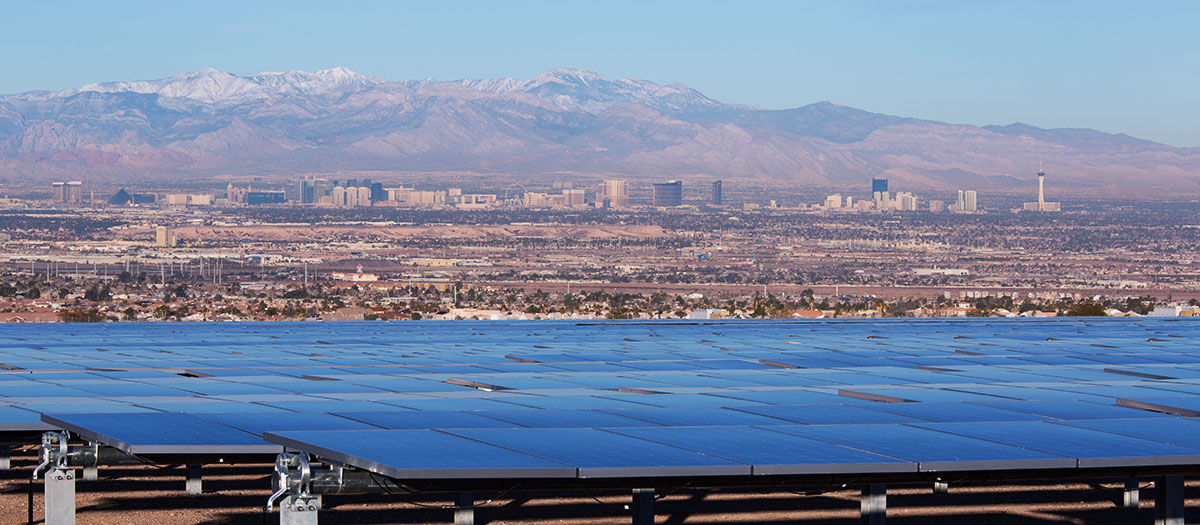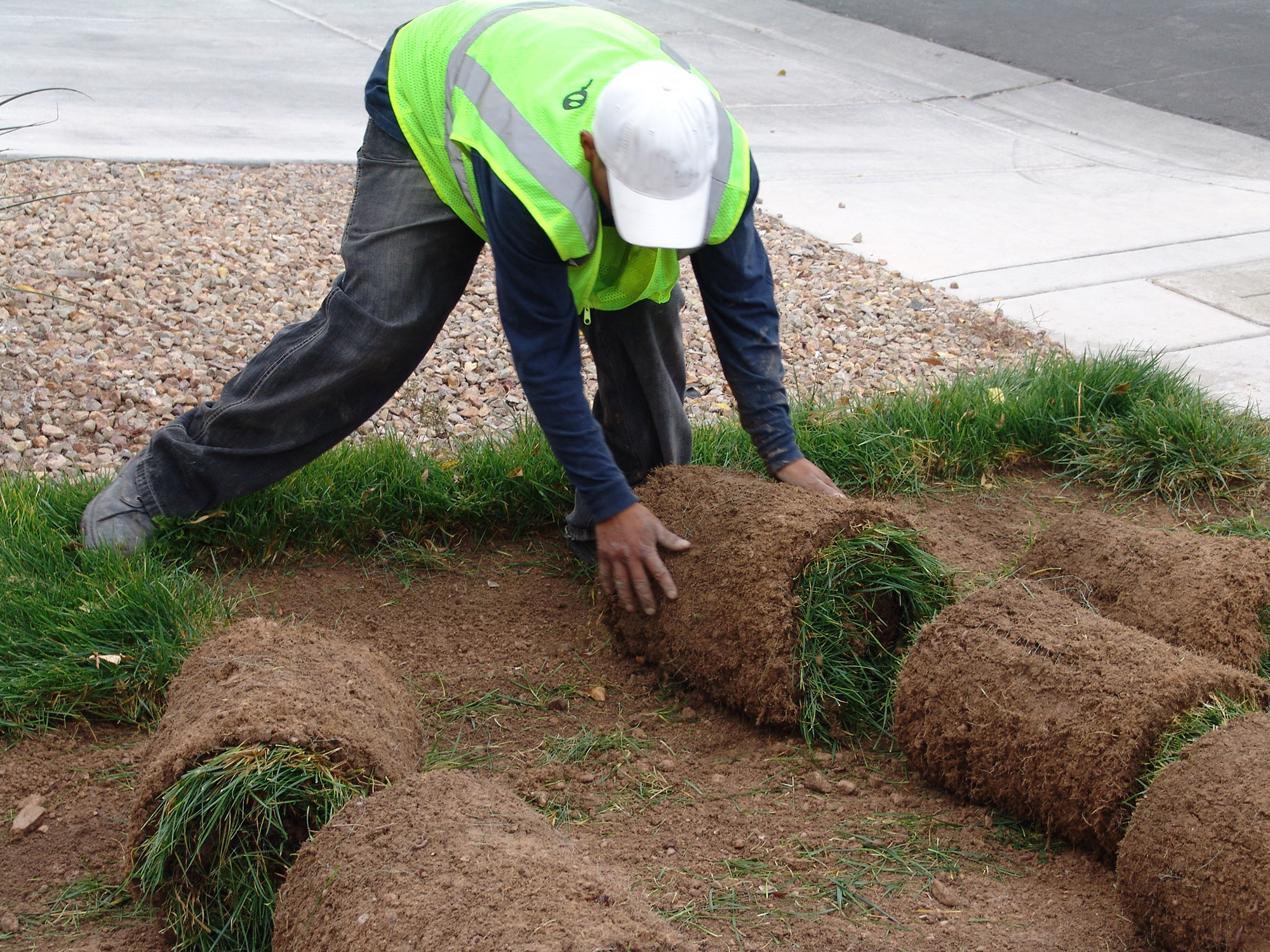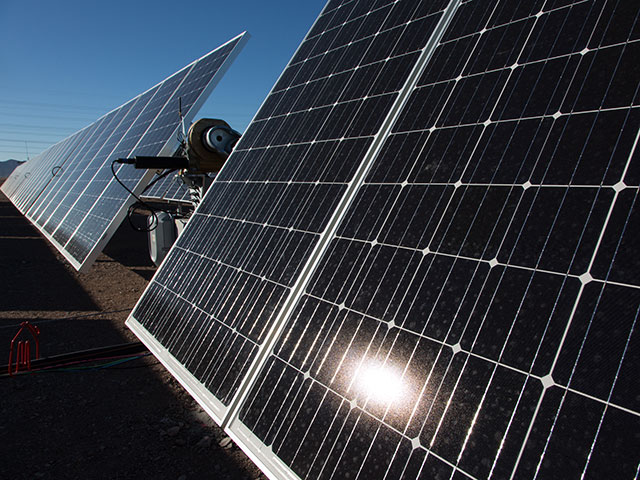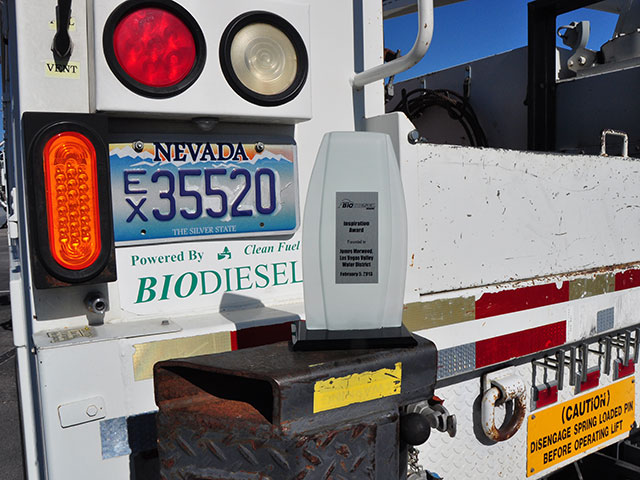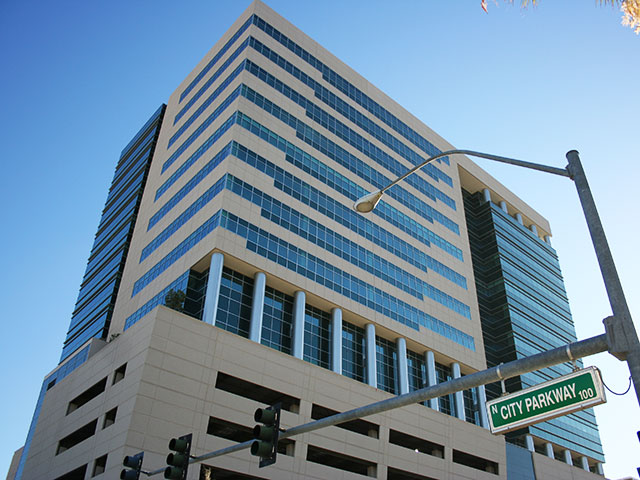Sustainability is inseparably linked to the conservation of vital resources. This concept forms the framework for SNWA's sustainability initiatives, focusing on four main areas: water, energy, environment and personal responsibility.
As a water provider and educator in one of the region's driest communities, living a conservation ethic is an essential part the organization's work practice. The SNWA strives to provide sufficient water to the community while promoting conservation, utilizing reliable, renewable water resources and maintaining water quality with minimal impact on the environment.
Sustainability in action
See how the Southern Nevada Water Authority meets the needs of the present without compromising the ability of future generations.
The SNWA has undertaken a range of projects that help to bolster sustainability initiatives.
Water savings
In 2024, the water saved from SNWA’s conservation programs averted more than 30,300 metric tons of carbon dioxide equivalent discharge (more than 67 million pounds) through avoided water pumping, treatment and transmission activities. That is comparable to taking 7,100 cars off the road every year.
Renewable energy
Following the passage of modified renewable energy standards by the Nevada Legislature in 2019, the SNWA met the 2022 target of 29 percent renewables and is on track to meet the 50 percent target by 2030. The SNWA's renewable energy resources provide more than 170 million kilowatt hours of clean energy, enough to power nearly 13,000 Southern Nevada homes annually.
Alternative-fueled vehicle fleet
The organization upgraded its fleet to include 89 percent alternative fuel vehicles or hybrids.
▶️Watch to learn more: Award-winning fleet
LEED certification
The SNWA continues to minimize the environmental impacts of operations and create a greener way of working. Reducing, reusing and recycling are key components of waste reduction efforts. SNWA facilities are designed to be environmentally conscious, including certification under U.S. Leadership in Energy and Environmental Design (LEED) green building program.
Understanding and addressing our urban heat island
Urban cores often experience higher temperatures than outlying areas due to the urban heat island (UHI) effect, caused by the replacement of natural landscapes with heat-absorbing surfaces like roads and buildings.
This effect raises cooling energy demands, increases emissions, impacts health, and disrupts stormwater systems.
According to a 2017 Climate Central study, in Las Vegas, UHI makes the urban area 7.3°F hotter than surrounding regions.
Trees, green roofs, and vegetation help reduce UHI by shading surfaces, blocking sunlight, and cooling through transpiration—releasing moisture into the air to lower temperatures.
In 2023, SNWA introduced two new programs to increase shade in the community:
-
🌳 The SNWA Board approved a “treebate” incentive, adding $100 per tree for residential and commercial participants in the Water Smart Landscape (WSL) program, encouraging up to 100% canopy coverage to help counteract urban heat. Since program inception, the SNWA has supported more than 4,266 new tree installations as part of the incentive, representing more than 1.8 million square feet of new tree canopy at maturity.
-
🌳 SNWA has planted more than 1,000 trees in high-heat, low-income neighborhoods with ImpactNV. The SNWA committed $500,000 in program funding and will continue to support tree installations until this funding is fully expended. The SNWA is also part of the Las Vegas Urban Tree Canopy Coalition, aiming to develop a strategic urban forestry plan with Valley partners.
Need tree help in your own landscape? Get tree care tips!
Other steps SNWA is taking to understand and address UHI:
- The SNWA is collaborating with Clark County and other stakeholders to quantify water and energy benefits associated with cool roof retrofits. This research will guide potential incentive programs to reduce UHI and water use associated with evaporative cooling.
- Through involvement in the Clark County-led All-In Regional Climate Collaborative, the SNWA and community partners are pursuing competitive grant funding to implement programs, policies and projects that reduce greenhouse gas emissions, mitigate UHI impacts and save water.
- In collaboration with Southern Nevada Strong and the Regional Transportation Commission, the SNWA provided downscaled climate data used to develop the recently published Extreme Heat Vulnerability Study. The study highlights the region's vulnerability to extreme heat and informs future work efforts.
- The SNWA offers in-kind support to the newly developed Southern Nevada Heat Resilience Lab (SNHRL), led by the Desert Research Institute. The lab brings together public service providers, researchers and experts to explore innovative solutions for extreme heat adaptation and response.
